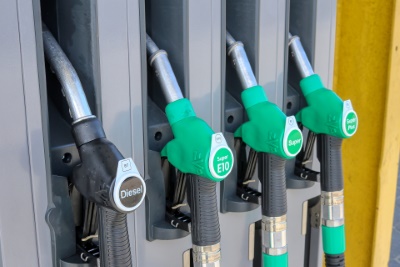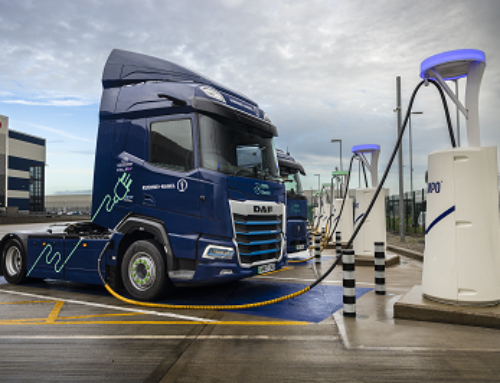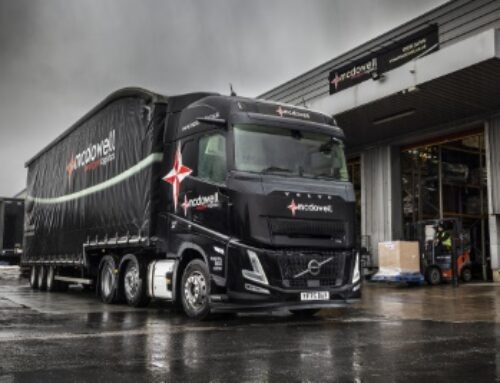Industry reacts to Spring Budget measures
 Industry representatives welcomed a variety of fiscal measures unveiled last month by the chancellor Jeremy Hunt in his Spring Budget, including announcements on fuel duty – but said that some key concerns remained unaddressed.
Industry representatives welcomed a variety of fiscal measures unveiled last month by the chancellor Jeremy Hunt in his Spring Budget, including announcements on fuel duty – but said that some key concerns remained unaddressed.
Citing high inflation levels, Mr Hunt said in March that he had decided it was “not the right time” to increase the fuel duty burden.
He therefore announced a 12-month continuation of the temporary five pence per litre cut introduced last year, and said fuel duty would not be uprated in line with inflation.
In addition, vehicle excise duty (VED) for HGVs was frozen for 2023-24 “to support the haulage sector”, the Treasury said.
It also confirmed, however, that the reformed HGV road user levy, currently suspended, would enter into force as of 1 August 2023. Its revised structure and rates will place increased emphasis on vehicles’ environmental performance.
In a statement, the Road Haulage Association’s (RHA) director of public affairs and policy, Declan Pang, said: “We are pleased the chancellor has listened to the RHA and continued the fuel duty freeze and maintained the 5p per litre cut brought in 12 months ago. This is something we’ve campaigned for to help reduce costs and control inflation.”
The organisation also welcomed the continued VED freeze, which Mr Pang said was “another much needed win for RHA members following our engagement with government”.
“However, today’s Budget could have gone much further to support hauliers, coach operators and the logistics industry,” he continued.
“We are disappointed to see the increase in corporation tax from 1 April as well as the return of the HGV levy from August this year. This is a tax targeted at the road freight industry that economic growth in the UK relies upon.
“We are also concerned that the focus of the HGV levy has been shifted towards CO2 emissions.
“The original intention of the levy was to ensure overseas operators contributed to the upkeep of the UK road infrastructure. If this is no longer the main purpose of the levy, we question its utility at all, given the progress the industry has already made in reducing emissions.
“The lowering amounts of levy funds recouped as fleets modernise will also need to be addressed.”
RHA said that the 100 per cent first-year capital allowance announced by the Treasury for investment in plant and machinery, which will apply up to March 2026, was also welcome – as was an investment in measures designed to encourage over-50s back to the workforce, including skills bootcamps.
But it added: “We would have liked to have seen more government efforts into recruiting younger people behind the wheels of trucks and coaches.”
Logistics UK chief executive David Wells said: “Today’s announcement that the 5ppl cut in fuel duty is to be retained for a further 12 months is very welcome news for logistics businesses, particularly SMEs – who make up 99 per cent of the industry, and traditionally operate on low margins.
“Logistics UK has consistently urged government to extend this cut, while maintaining revenue levels through VAT and other sources. Logistics is at the heart of every sector of the economy; this decision recognises the importance of managing logistics costs to avoid further inflationary pressures on business and consumers.
“This should help to ensure businesses have the funds to invest in productivity, growth and greener technologies, alongside the new policy for full capital expenditure announced as the successor to the super-deduction (providing it encourages the transition to a zero-carbon economy).”
However, he said Logistics UK was dismayed by the lack of support to assist businesses with high energy costs and decarbonisation.
“This is a missed opportunity,” said Mr Wells.
“Our members will also be concerned about proposals for a reformed HGV road user levy and together we will be seeking urgent clarification as to the detail involved.
“While we are also disappointed there was no reference to much-needed Apprenticeship Levy reform, it is encouraging that government is focused on supporting people into work, which will help to relieve the existing skills gaps in industry and the wider UK economy.
“Logistics UK will work with its members to scrutinise the detail and identify what these measures will entail, such as the announcement of skills bootcamps and Returnerships, and whether these will provide a credible pathway into logistics.”
The Society of Motor Manufacturers & Traders (SMMT) also welcomed several elements of the Budget package.
Chief executive Mike Hawes said: “We face fierce international competition so it was pleasing to hear the chancellor directly reference industrial strategy and measures to attract investment.
“Tax breaks for capital expenditure, which the industry has long called for, extensions to climate change agreements plus action to alleviate the high cost of living and encourage more people into work are all much-needed.
“Investment zones which focus on advanced manufacturing, of which automotive is an exemplar, R&D and technology are also positive steps.”
However, Mr Hawes cautioned that there was little that enabled the UK to compete with “massive packages of support to power a green transition” that were available elsewhere.
“Indeed, the announced fuel duty freeze contrasts with an absence of measures to boost uptake of zero emission vehicles, such as reducing VAT on public charging,” he continued. “We, therefore, look forward to additional policy announcements that support advanced manufacturing sectors, as the right conditions will enable the investment that drives growth across the country.”
Meanwhile the British Vehicle Rental & Leasing Association (BVRLA) welcomed a commitment by government to work with its sector in delivering a more supportive capital allowances regime, with the aim of overcoming the long-standing exclusion from such schemes of rental and leasing businesses. The ability to claim such allowances would enable leasing and rental providers to pass on savings to customers in the form of lower rates for their services, the organisation said.
BVRLA chief executive Gerry Keaney commented: “The government has acknowledged how critical vehicle rental and leasing is in driving business investment in cleaner commercial vehicles and infrastructure.
“We look forward to working with them in the coming months to develop a powerful capital allowances regime that can drive even faster decarbonisation of road transport.”
But he added: “Other aspects of the Budget are more concerning and at odds with the cost of living crisis the nation finds itself in. Rising VED for cars and vans in line with RPI, not CPI, puts an even greater financial burden on drivers.
“The reintroduction of the HGV levy adds further costs and is something the BVRLA will be working with members and policymakers on to ensure a fair implementation.”













